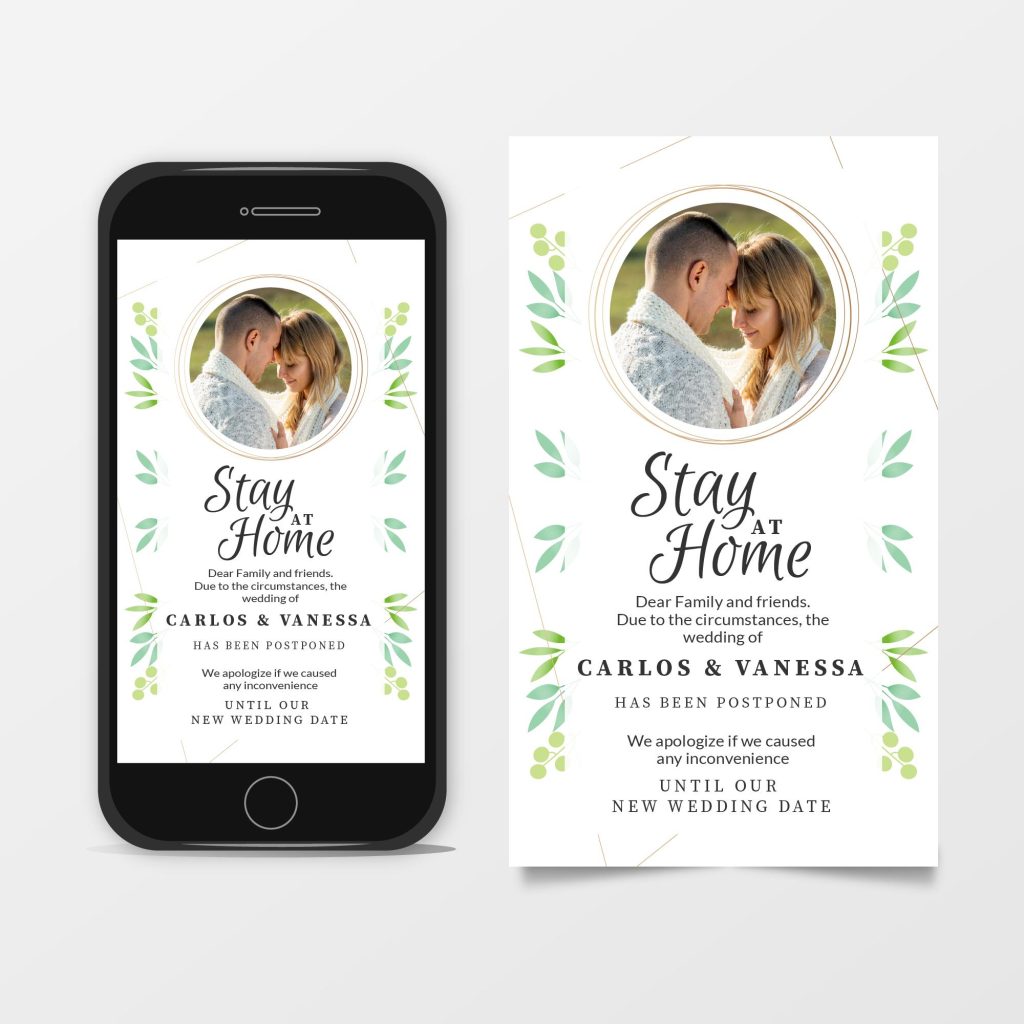Online Wedding Invitation Services – In today’s digital age, it’s no surprise that traditional paper wedding invitations are making way for their eco-friendly and convenient digital counterparts. Online wedding invitation services have revolutionized the way couples announce their nuptials and gather their loved ones to celebrate. In this comprehensive guide, we’ll explore the world of online wedding invitation services, addressing important questions about their cost, sending process, and etiquette.

How much does an Online Wedding Invitation services cost?
The cost of digital wedding invitations can vary significantly, depending on various factors. Here’s a breakdown of the key cost considerations:
- Design and Customization: Many online wedding invitation services offer a range of free and premium templates. Free templates are an excellent option if you’re on a tight budget, while premium templates or custom designs may come at an additional cost. Prices for premium templates or customization can range from $10 to $50 per design, depending on the complexity and the service provider.
- Guest List Size: Some online services charge based on the number of guests you intend to invite. For larger guest lists, expect higher costs. It’s important to choose a service that suits your guest list size while staying within your budget.
- Additional Features: Some online platforms offer extra features like RSVP tracking, guest management, and online RSVP websites. These features may come with additional charges, ranging from $20 to $100 or more, depending on the service.
- Printing and Mailing: While digital invitations are primarily designed for online use, you can choose to print physical copies for a more tangible keepsake. Printing and mailing services can add anywhere from $1 to $5 or more per physical invitation.
- Subscription Plans: Some platforms offer subscription plans that provide access to premium features, including unlimited designs and guest lists. These plans typically range from $10 to $30 per month.
- Envelopes and Accessories: If you’re considering additional accessories like custom envelopes or save-the-date cards, these will incur extra costs.
- DIY vs. Professional Services: You can save money by designing digital invitations yourself using graphic design software, but professional designers may charge anywhere from $100 to $500 or more to create personalized invitations.
It’s crucial to research and compare different online wedding invitation services to find the one that aligns with your budget and design preferences. Many platforms offer a mix of free and paid options, giving you flexibility in crafting your perfect invitation.
How do you send a virtual wedding invitation?

Sending a virtual wedding invitation is a straightforward process, and it offers numerous advantages, such as eco-friendliness, instant delivery, and cost-effectiveness. Here’s a step-by-step guide to sending digital wedding invitations:
- Choose an Online Service: Start by selecting a reputable online wedding invitation service. Some popular options include Evite, Greenvelope, Paperless Post, and Canva. Sign up for an account if required.
- Select a Template: Browse through the available templates or create a custom design that reflects your wedding theme and personal style.
- Customize Your Invitation: Personalize the invitation by adding your wedding details, including the date, time, venue, dress code, and a brief message. Upload images, change fonts, and adjust colors to match your wedding theme.
- Create a Guest List: Most online platforms allow you to import your guest list from your email contacts or spreadsheet. Ensure you have accurate email addresses for all your guests.
- Address and Send Invitations: Fill in your guests’ email addresses, and the online service will send out the invitations on your behalf. Some platforms also allow you to schedule when the invitations are sent.
- Track RSVPs: Many online services offer RSVP tracking, allowing you to see which guests have responded to your invitation. This makes guest management and planning much more manageable.
- Follow Up: It’s a good practice to send follow-up emails or reminders to guests who haven’t responded to your invitation closer to the RSVP deadline.
- Include an Option for Technophobes: While digital invitations are convenient, not all your guests may be tech-savvy. It’s considerate to provide an alternative way for these guests to RSVP or receive information about the wedding, such as a phone number for inquiries.
Sending virtual wedding invitations is an efficient and eco-friendly way to invite your guests. It ensures that your loved ones receive their invitations instantly, and it allows for easy communication and RSVP tracking.
Is it OK to do online wedding invitations?
The shift towards digital wedding invitations has sparked debates about their etiquette and appropriateness. Let’s address some common concerns and provide insight into the acceptability of digital wedding invitations:
- Environmental Impact: One of the primary reasons for the rise in digital invitations is their environmental friendliness. Digital invitations eliminate paper waste, reducing the environmental impact associated with traditional invitations.
- Cost-Effectiveness: Digital invitations are often more affordable than their paper counterparts. They save on printing, postage, and design costs, making them an attractive choice for budget-conscious couples.
- Convenience: Sending and receiving digital invitations is convenient and instant. Guests can access the details on their devices and easily RSVP online. This convenience is particularly advantageous for destination weddings or short-notice events.
- Personalization: Online platforms offer a wide range of design options, allowing couples to create highly personalized and unique wedding invitations. Customization is a hallmark of many online wedding invitation services.
- Guest Accessibility: While digital invitations are generally well-received, it’s essential to consider the accessibility of your guests. Some individuals may not have regular access to the internet or may prefer physical invitations. In such cases, it’s considerate to provide alternatives, like sending physical invitations to select guests.
- Etiquette: Digital invitations can be just as formal and elegant as paper ones, and they are increasingly considered acceptable for a variety of wedding styles, from casual to formal. However, for very formal or traditional weddings, traditional paper invitations may still be preferred.
- Tech-Savvy Guests: As the world becomes more tech-oriented, many guests are accustomed to receiving digital invitations for various events, so they are likely to appreciate the convenience.
In conclusion, digital wedding invitations are becoming more widely accepted due to their environmental benefits, cost-effectiveness, and convenience. However, the choice between digital and paper invitations ultimately depends on your wedding’s style, your guests’ preferences, and your budget. It’s essential to strike a balance that suits your needs and respects the preferences of your guests.
Conclusion for online wedding invitation services:
Online wedding invitation services have ushered in a new era of invitation flexibility and convenience. Understanding the cost, sending process, and etiquette associated with digital invitations is crucial for modern couples planning their big day. While digital invitations are gaining popularity, the choice between digital and paper invitations ultimately depends on your specific needs, your budget, and your guests’ preferences. With the right approach, digital wedding invitations can be a stylish and eco-friendly choice for announcing your special day to friends and family.




